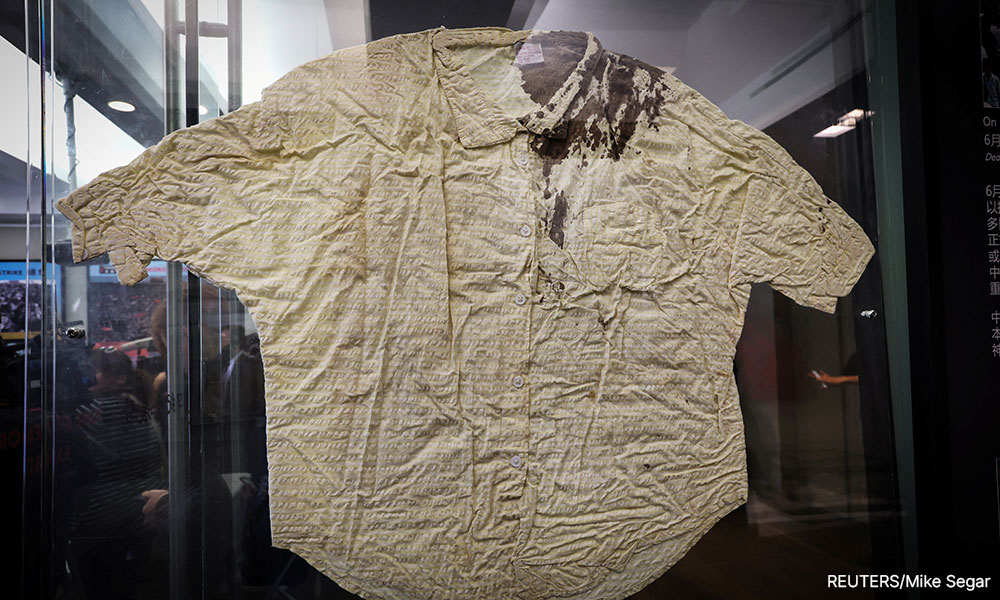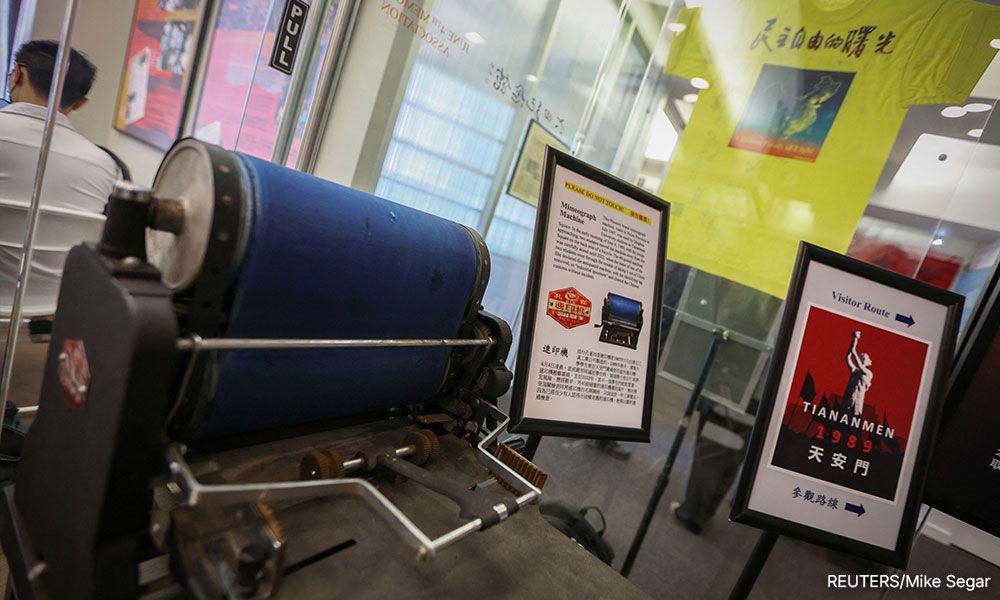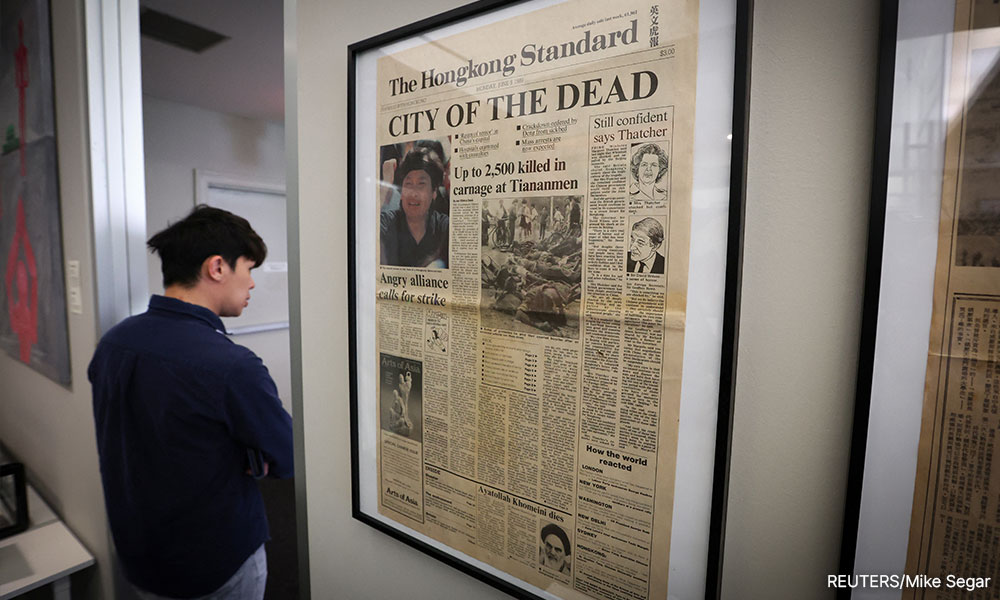The hope for a "free China" lives on in a new Manhattan museum dedicated to China's 1989 suppression of pro-democracy demonstrations around Tiananmen Square, exhibit organisers said on Thursday ahead of the 34th anniversary of the crackdown.
The June 4th Memorial Museum in New York will be the only such permanent exhibition in the world, following the 2021 closure of a similar museum in Hong Kong under pressure from authorities.
Tanks rolled into the Beijing square before dawn on June 4, 1989, to end weeks of student and worker protests.
Decades after Chinese leaders ordered the military assault, rights activists say the demonstrators' original goals - including a free press and freedom of speech - are further away than ever.
The small New York museum - situated in a cramped office space on the fourth floor of a Sixth Avenue office building - holds items from the Tiananmen events, including banners, letters, and a blood-stained shirt, as well as photos and detailed news articles from the time.

Zhou Fengsuo, 55, an exiled former Tiananmen student leader who helped plan the museum, told a press conference that it was a place where the "hope for a free China" lives.
"Because there is hope. No matter what kind of defeat there was, and how much struggle we had to go through, this dream lives here," Zhou said.
Organisers are set to hold an opening ceremony on Friday.
China's Embassy in Washington did not respond immediately to a request for comment.

China has never provided a death toll of the 1989 violence, but rights groups and witnesses say it could run into the thousands.
Marking June 4 in mainland China is taboo and the government has ramped up censorship in recent years.
Public memorials of the crackdown were once allowed in Hong Kong, but Hong Kong police have barred a vigil there since 2020, citing Covid-19 concerns. It is unclear if authorities in the former British colony will allow public memorials this year.
Overseas activists are helping to organise events in cities including Taipei, London, Berlin, and Washington.

Wang Dan, another former Tiananmen student leader who helped establish the museum, said he felt it was his obligation to show his respect for the protesters who died.
"Don't give up," Wang told Reuters. "That's my message to fellow Chinese people."
- Reuters

